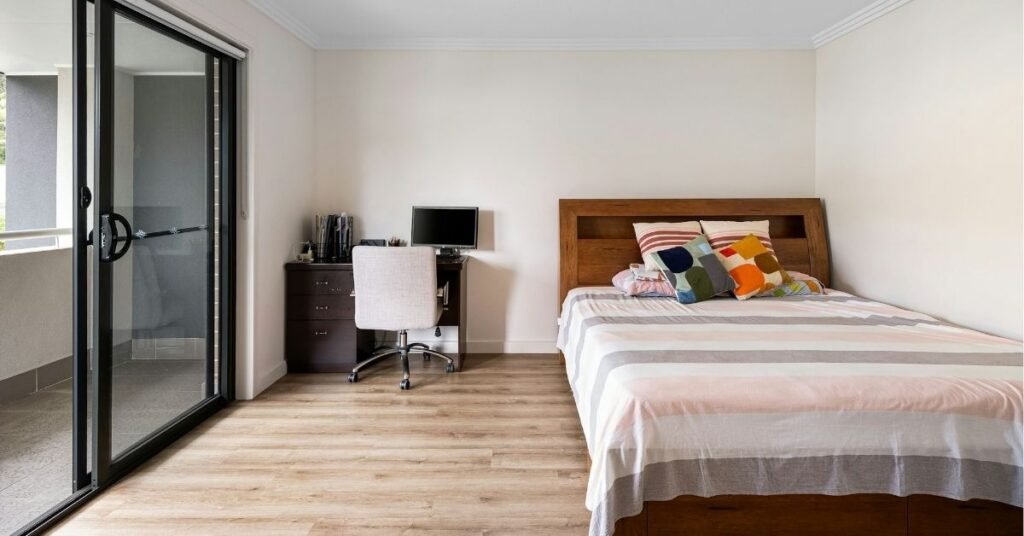Studying medicine in the Caribbean is a popular path for many international students — but finding the right place to live is as important as choosing the school itself. The best student accommodations for Caribbean Medical College students combine safety, study-friendly environments, reliable internet, easy access to campus and clinical sites, and community support.
Whether you prefer university-managed dorms, school-sponsored apartments, or private off-campus rentals, this guide walks you through the housing options, practical considerations, and actionable tips to secure a comfortable home away from home.
Best Student Accommodations Caribbean Medical College
Caribbean medical colleges typically offer several accommodation models. Knowing the pros and cons of each will help you make a decision that supports both your studies and well-being.
University-sponsored / on-campus housing
Many Caribbean medical schools provide university-managed apartments or residence halls specifically for medical students. These options are popular because they are designed with student needs in mind:
- Proximity and convenience: On-campus or university-sponsored housing is generally close to lecture halls, libraries, and labs, saving commute time and reducing daily stress.
- Student-focused amenities: Units are often furnished and include essentials like study desks, reliable high-speed internet, kitchenettes or full kitchens, laundry facilities, and air conditioning.
- Safety and support: Managed housing typically has secure entry systems, on-site staff or emergency contacts, and an established maintenance process.
- Community and academic integration: Living near classmates makes it easier to form study groups, access faculty support, and get involved in student life.
Many schools also operate shuttles between the housing complexes and campus so students can travel easily even if the residence is a short walk away.
School-affiliated apartments and dorms
Some institutions partner with local apartment complexes or maintain their own apartment blocks for students. These can vary from single-bedroom units to shared two-bedroom apartments. School-affiliated options strike a balance between independence and institutional oversight:
- Fully furnished units: Move-in ready apartments reduce the hassle of buying furniture and appliances.
- Shared living models: Many apartments are set up for double occupancy with split bedrooms and a shared living area, which makes social support and cost-sharing easier.
- Utilities and services: Housing offices sometimes include utilities and internet in the housing package and provide guidance on local services and transport.
Family and partner housing
For students who relocate with a spouse or children, several Caribbean medical colleges offer limited family housing or can help with local options. Family housing is usually limited in supply, so early inquiry and application are essential if you need this support.
Off-campus private rentals
Off-campus rentals broaden your choices, especially for students seeking more privacy, quieter neighborhoods, or the ability to live with friends. Typical off-campus options include:
- Private apartments and studios — Popular with students who want independence and personal space.
- Shared houses or flats — A common choice for groups of students who prefer to split chores and costs.
- Homestays — Living with a local family can provide cultural immersion and practical support for newcomers.
While off-campus housing offers freedom, it requires more active management: signing leases with local landlords, setting up utilities, and organizing internet. Universities often provide housing lists and trusted landlord directories to help students find safe options.
What to look for in the best student accommodation
Choosing the right accommodation goes beyond the price or appearance. Prioritize the features that will support your study routine and health:
- Reliable high-speed internet — Essential for accessing online lectures, research materials, and virtual study groups.
- Quiet study space — A dedicated desk and a quiet corner are non-negotiable for focused learning.
- Proximity to campus and clinical sites — Shorter commutes save time and energy for studying and lab work.
- Security features — Gated complexes, secure entry, and visible maintenance/administration help students feel safe.
- Laundry and kitchen facilities — Practical amenities make daily life manageable and help you maintain routines.
- Support services and local contacts — Easy access to the housing office, student affairs, and local emergency numbers is crucial.
- Healthcare access — Proximity to local clinics or campus health services reduces stress during illness.
When you tour a place, test the Wi‑Fi, check for reliable water and power, and ask how maintenance requests are handled. If air conditioning is common in the region, confirm the unit’s condition and whether servicing is included.
Safety, transport and neighborhood considerations
Safety and ease of travel are top concerns for students living overseas. Here’s how to evaluate those factors:
- Transport options: Look for locations with regular school shuttles, local bus routes, or easy taxi access. Some schools run free shuttles between campus and popular residential areas.
- Walkability and amenities: Nearby grocery stores, pharmacies, and banks make student life smoother. Check the walking routes to campus and whether sidewalks and street lighting are available.
- Local community and language: Familiarize yourself with local norms and language. Students who choose homestays or smaller neighborhoods often learn faster and feel supported socially.
- Emergency infrastructure: Be clear on local emergency numbers, nearest hospital locations, and the school’s emergency protocols.
Practical steps to secure the best accommodation
Finding housing can be competitive, particularly around term start dates. Use this checklist to streamline the search:
- Contact the housing office early: Ask about on-campus availability, waitlists, and application deadlines.
- Join incoming student groups: Facebook groups, WhatsApp chats, or school forums are great places to find roommates and rental leads.
- Arrange short-term options for arrival: A short-term hotel or hostel helps you transition while you view longer-term options.
- Request photos and virtual tours: If you cannot visit in person, ask for recent pictures and a video walk-through of the unit.
- Read lease terms carefully: Check for included utilities, deposit terms, notice periods, and subletting policies.
- Verify landlord or housing office credentials: Use university references for local landlords and avoid handing over money without a signed contract.
- Ask about insurance and deposits: Many campuses recommend renters’ insurance and clear deposit refund rules.
- Confirm move-in logistics: Verify move-in dates, key collection, and COVID or health-related entry requirements.
Living well while studying medicine in the Caribbean
A good living situation supports more than studying—it supports physical and mental health. Keep these tips in mind:
- Set a study routine and carve out a quiet study space in your room or find reliable study areas on campus.
- Build a local network—classmates, mentors, and student groups help you settle faster and share practical tips about life on the island.
- Prioritize sleep and nutrition—look for housing with kitchen access to prepare healthy meals and avoid late-night study marathons.
- Use campus resources—housing offices, counseling, and student affairs teams can help with roommate conflicts, safety concerns, and academic stress.
Final thoughts
The best student accommodations for Caribbean Medical College students are those that match your study habits, lifestyle, and personal needs. University-sponsored housing usually offers the most direct support and community, while off-campus rentals can provide more privacy and independence.
Regardless of the option you choose, prioritize reliable internet, security, proximity to campus, and a quiet place to study.
Start your search early, use the school’s housing resources, and connect with fellow students to find a home that helps you thrive academically and personally during your medical training.


